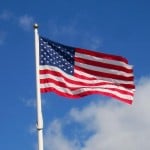Top 10 Patriotic Speeches in American History

What makes a speech patriotic? According to the Oxford dictionary, a patriot is “a person who vigorously supports their country and is prepared to defend it against enemies or detractors.” Implicit in this definition is strong emotion. A patriotic person is proud of their country, and feels that pride strongly enough to fight for their country. According to Stories of USA, the top ten patriotic speeches in American History are (in ranked order):
- Dr. Martin Luther King Jr. – I Have a Dream – August 23, 1963
- Abraham Lincoln – Gettysburg Address – November 19, 1863
- Franklin Delano Roosevelt – Pearl Harbor Address to the Nation – December 8, 1941
- John F. Kennedy – The Decision to Go to the Moon – May 25, 1961
- Patrick Henry – Give Me Liberty, or Give Me Death – March 23, 1775
- Ronald Reagan – Remarks at the Brandenburg Gate – June 12, 1987
- George Washington – Farewell Address to the Nation – December 23, 1783
- Ronald Reagan – Farewell Address to the Nation – January 11, 1989
- Franklin Delano Roosevelt – First Inaugural Address – March 4, 1933
- Douglas MacArthur – Duty, Honor, Country – May 12, 1962
We analyzed this list with our communications analytics platform, and the metric that stood out, not surprisingly was emotion. Across the board, these speeches rank higher in emotional language than a corpus of everyday conversations and above the average of our extensive communications database. The average emotional language score of the patriotic speeches was 6.69%, the score from the everyday language corpus was 3.69% and the Quantified Communications database average was 4.55%,

Social psychology helps to explain why patriotism is so connected with emotions. People often self-identify with their country; it forms part of how we define ourselves. According to the essay, Nationalism, Patriotism and Group Loyalty: A Social Psychological Perspective, published in The International Studies Association, “At the level of the nation, the group fulfills economic, sociocultural, and political needs, giving individuals a sense of security, a feeling of belonging, and prestige”. We become sentimentally attached to our home nation, we are motivated to help our country progress, and we “gain a sense of identity and self-esteem through national identification”. Since patriotism is such a personal matter, it makes sense that our communications analytics would find strong emotional language in these patriotic speeches.
To learn more about how our communication analytics platform and communications experts can help improve your next speech, contact us at info@quantifiedcommunications.com.